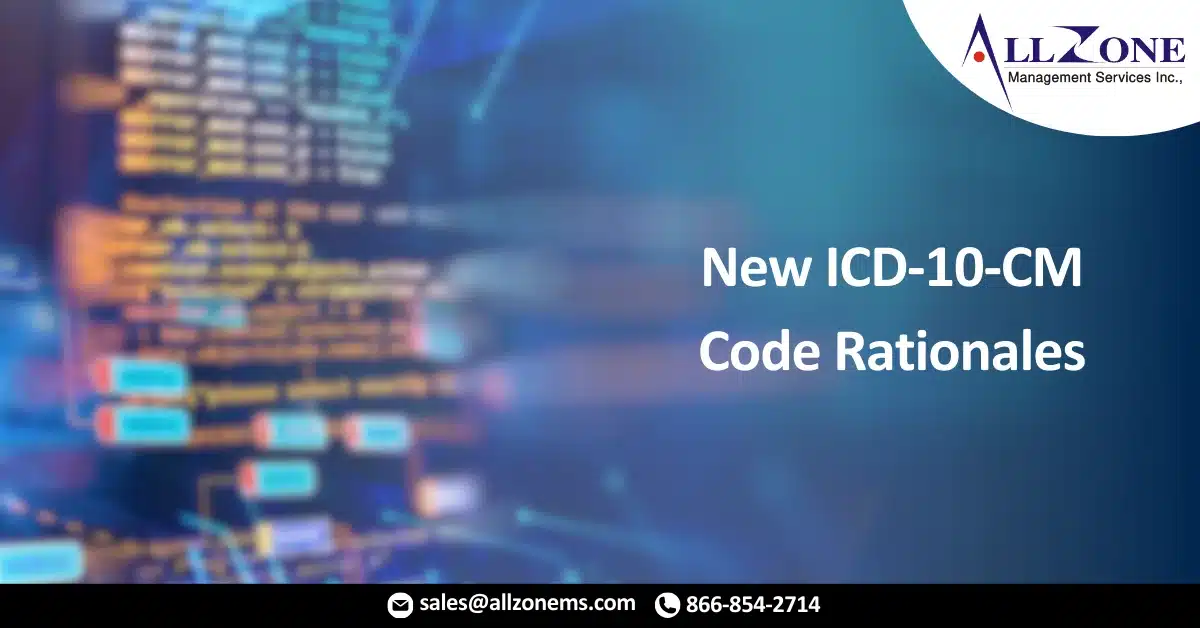Rationales for ICD-10-CM updates are key to improved medical coding, data reporting, and physician reimbursement.
Many of the ICD-10-CM updates for 2020, presented at the ICD-10 Coordination and Maintenance Committee meeting on Sept. 11-12, 2018, provide insight into the purpose of subsequent code changes, which can help you to use the updated code set more easily and efficiently. Here are rationales for some of the new codes that go into effect Oct. 1, 2019.
Atrial Fibrillation
Code changes under category I48 Atrial fibrillation and flutter were deemed necessary to maintain the term “chronic atrial fibrillation” in ICD-10-CM as it appears in the World Health Organization’s (WHO) ICD-10.
Breast Lump in Overlapping Quadrants
New codes N63.15 Unspecified lump in the right breast, overlapping quadrants and N63.25 Unspecified lump in the left breast, overlapping quadrants allow for proper code assignment when an unspecified lump in the breast overlaps anatomic sites classifiable to different codes.
Congenital Deformities of Feet
The new codes under category Q66 Congenital deformities of feet are added to create consistency across all congenital foot deformities, which allows specification of side.
Cyclical Vomiting Syndrome
ICD-10-CM code R11.10 Vomiting, unspecified does not adequately represent the clinical significance of cyclical vomiting syndrome and the treatment of the disorder not related to migraines. Beginning Oct. 1, 2019, use new code R11.15 Cyclical vomiting syndrome unrelated to migraine to report this diagnosis. Codes under G43 Migraine and R11 Nausea and vomiting are revised to accommodate the new code.
Deficiency of Adenosine Deaminase 2
The new codes under category D81 Combined immunodeficiencies were needed to differentiate between the types of adenosine deaminase deficiency. Type 2, for example, generally involves mild immunodeficiencies, while type 1 causes severe combined immunodeficiency (SCID).
Deep Vein Thrombosis
2019 ICD-10-CM lacks specific codes to capture thrombophlebitis or thrombosis involving the peroneal vein or muscular branch veins. The new 2020 codes under category I80 Phlebitis and thrombophlebitis for specific vein thrombosis in the distal lower limb enable you to better capture these diagnoses and avoid current limitations with capturing patient safety-related events, according to the Agency for Healthcare Research and Quality.
Ehlers-Danlos Syndrome (EDS)
EDS is a clinically and genetically heterogeneous group of heritable connective tissue disorders, some of which are more common than others. The most severe, and the only one associated with early mortality, is vascular EDS. Code Q79.6 Ehlers-Danlos syndrome is revised and expanded to include codes for the various types of this disorder.
Latent Tuberculosis Infection (LTBI)
LTBI occurs when a person is infected with the bacteria Mycobacterium tuberculosis but does not have active tuberculosis (TB) disease. New codes under categories Z11 Encounter for screening for infectious and parasitic diseases, Z22 Carrier of infectious disease, and Z86 Personal history of certain other diseases are added to differentiate between latent and active TB.
Legal Intervention
There are many codes under category Y35 Legal intervention that describe modern-day mechanisms of injury to a suspect, bystander, or law enforcement official resulting from a legal intervention, but none for unspecified persons. New codes are added to specify “unspecified person injured,” as well as to differentiate between “manhandling” and “bodily force.” There are also new codes to specify legal intervention involving injury by a conducted energy device such as a taser.
Subsegmental Pulmonary Embolism (SSPE)
Two new codes are added under category I26 Pulmonary embolism to specify single SSPE without larger clots with or without acute cor pulmonale to improve specificity over existing code I26.99 Other pulmonary embolism without acute cor pulmonale.
Travel Health Counseling
The American Academy of Pediatrics requested a new code to identify travel health-related encounters, which they say are increasing. Beginning Oct. 1, 2019, report Z71.84 Encounter for health counseling related to travel for travel health counseling services provided to patients and caregivers unrelated to a preventive medical care encounter.
Get the Big Picture
These are summaries of the proposals for some of the new ICD-10-CM codes for Fiscal Year 2020. For complete rationales, refer to ICD-10 Coordination and Maintenance Committee Meeting (Sept. 11-12, 2018), Diagnosis Agenda, Part I and Part II.
For More Information: https://www.aapc.com/blog/48559-new-icd-10-cm-code-rationales/

